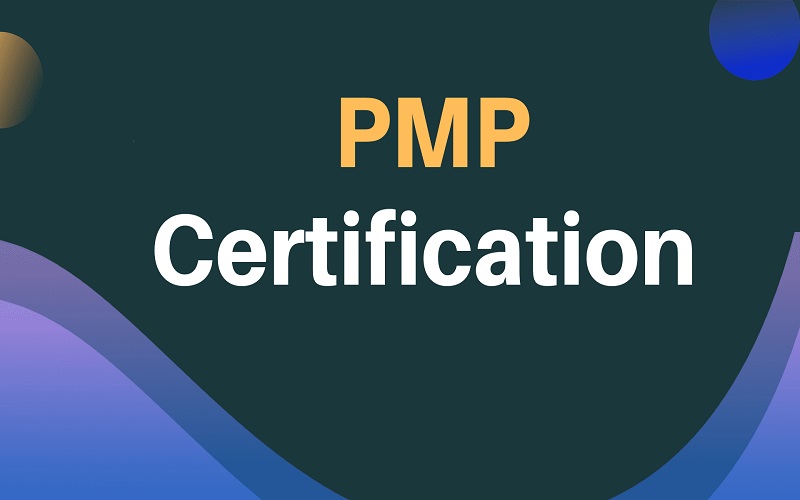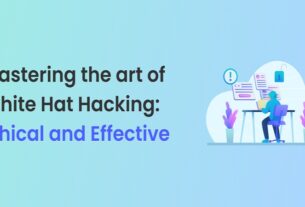Are you considering taking the PMP certification in 2023 but wondering if it’s worth it? Project Management Professional (PMP) is a globally recognized credential for project managers. It demonstrates your ability to lead and manage projects effectively, which can open up exciting career opportunities for you. However, like any significant investment of time and money, it’s essential to weigh the pros and cons before deciding whether to pursue a PMP certification.
In this blog post, we’ll explore the benefits and drawbacks of obtaining this certification, alternative options available to enhance your project management skills, and how you can obtain your PMP certification in 2023. So let’s dive into the world of pmp dumps 2023!
What is PMP Certification?
PMP certification is a globally recognized credential for project managers. The Project Management Institute (PMI) issues it to individuals who pass a rigorous exam and meet the experience and education requirements.
The PMP Certification focuses on five key areas of project management: initiating, planning, executing, monitoring and controlling, and closing projects. These areas include critical knowledge domains like communication management, time management, cost management, quality management, risk management among others.
Obtaining a PMP certification is beneficial because it demonstrates that you have the necessary skills to lead a team through project completion while ensuring that everything stays within budget and meets all stakeholder needs.
Furthermore, having a PMP certification can help you stand out in your field by demonstrating your commitment to professionalism in project management. It also provides an opportunity for personal growth through learning new skills or refining existing ones.
The PMP certification serves as proof that one has met international standards of excellence in their profession as well as confirms their competence in managing complex projects from start to finish successfully.
The Different Types of PMP Certification
There are several types of PMP certifications available for professionals who want to advance their project management career. Each certification has its own set of requirements and benefits. Here are the different types of PMP certification:
1. Project Management Professional (PMP): This is the most common type of PMP certification, which demonstrates your knowledge and experience in managing projects using PMI’s approach.
2. Certified Associate in Project Management (CAPM): This entry-level certification validates your understanding of project management fundamentals and techniques.
3. Program Management Professional (PgMP): This advanced-level certification is designed for experienced program managers who oversee multiple related projects.
4. Portfolio Management Professional (PfMP): This high-level certification is intended for senior executives or portfolio managers responsible for aligning organizational strategies with portfolios.
5. Agile Certified Practitioner (ACP): This popular agile-focused certification proves your proficiency in agile methodologies, including Scrum, Kanban, Lean, and XP.
Each type of PMP certification has unique benefits depending on your career goals and aspirations as a project manager. It’s important to carefully consider which one aligns best with your professional objectives before pursuing it further.
Pros and Cons of a PMP Certification
A Project Management Professional (PMP) certification is highly sought after by many professionals in the project management industry. It validates your knowledge and expertise in project management, which can help you stand out from other candidates during job applications or promotions.
One advantage of obtaining a PMP certification is that it demonstrates your commitment to continuous learning and professional development. You will need to participate in ongoing education courses to maintain this certification, ensuring you stay up-to-date with the latest trends and best practices.
However, earning a PMP certification requires significant time investment, including studying for an exam that covers five domains: initiating, planning, executing, monitoring/controlling, closing. Additionally, there are fees associated with taking the exam itself.
Another potential drawback is that some employers may not place as much value on certifications as they do on experience. While having a PMP certification can be helpful when searching for new job opportunities or advancing within your current organization – it’s important to remember that it’s not necessarily a guarantee of employment or success.
Ultimately whether or not pursuing a pmp exam service from spoto certification is worth it depends on your career goals and individual circumstances. If you’re interested in advancing into higher-level positions within project management – then obtaining this credential could certainly pay off over time!
What Jobs are available with a PMP Certification?
Obtaining a PMP certification opens up various job opportunities within project management. With this globally recognized credential, individuals can pursue roles such as Project Manager, Program Manager, Portfolio Manager and Project Consultant.
As a Project Manager, one has the responsibility of overseeing a team to ensure that projects are completed on time and within budget while meeting the client’s expectations. The role requires excellent communication skills to keep stakeholders informed about progress and any potential roadblocks.
Program Managers oversee multiple projects at once which could be interrelated or independent but still fall under one umbrella program. They must have strong leadership skills to manage teams across different projects and ensure all objectives are met efficiently.
Portfolio Managers handle entire company portfolios with an emphasis on strategic planning. This includes managing budgets for all projects in their portfolio while ensuring they align with overall business goals.
Project Consultants provide guidance to companies looking to improve their project management processes. Their expertise helps organizations identify areas where improvements can be made leading to better performance outcomes.
Obtaining a PMP certification provides numerous employment opportunities in project management with high earning potentials for individuals seeking career advancement in this field.
How to get a PMP Certification?
The Project Management Professional (PMP) Certification is a globally recognized certification that demonstrates an individual’s expertise in project management. Here are the steps to follow in order to obtain your the Certification:
1. Check Eligibility: Before starting the application process, make sure you meet the eligibility requirements which include a minimum of 3 years of project management experience and a minimum of 35 hours of formal project management education.
2. Fill Out Application: The next step is to fill out and submit your PMP application online through the PMI website. Make sure all information provided is accurate and complete.
3. Schedule Exam: Once your application has been approved, schedule your exam at one of the testing centers nearest you. You will have up to one year from approval date to take the exam.
4. Study for Exam: Use study materials such as practice exams, textbooks, or training courses to prepare for the exam.
5. Pass Exam: On test day bring two forms of identification with at least one being government-issued ID and arrive early for check-in procedures before taking exam.
6. Maintain Your Certification: After passing your PMP Certification exam, maintain it by earning 60 professional development units every three years through continued education or volunteering in relevant projects within industry organizations.
Getting a the Certification requires commitment but can help advance career goals in various industries around the world!
Alternatives to the PMP Certification
While the PMP Certification is highly regarded in the project management world, it may not be for everyone. Luckily, there are alternatives to this certification that can still help advance your career.
One alternative option is the Certified Associate in Project Management (CAPM). This certification is designed for those who have less experience in project management but want to gain knowledge and skills in the field. It covers similar topics as the PMP Certification but requires fewer hours of work experience.
Another alternative is Agile Certifications such as Certified Scrum Master or PMI Agile Certified Practitioner (PMI-ACP). These certifications focus on different methodologies and approaches to project management compared to traditional methods like PMP.
Additionally, industry-specific certifications like Six Sigma or ITIL can also provide valuable skills and knowledge relevant to certain fields of project management.
It’s essential to consider what type of projects you’ll be working on when choosing an alternative certification path. Researching different options will ensure that you select a certification that aligns with your goals and interests while providing value within your industry.
While a PMP Certification may hold significant weight in some industries. Alternatives exist for those looking for other paths towards professional development and advancement within their careers.
Conclusion
Determining whether a PMP certification is worth it in 2023 ultimately depends on your career goals and aspirations. If you are looking to advance in project management or increase your earning potential. Obtaining a the certification can certainly be beneficial.
However, it’s important to consider the time and financial investment required for obtaining the certification. Additionally, there may be alternative certifications or paths that could also benefit your career growth.
Ultimately, weighing the pros and cons of a PMP certification and carefully considering your personal situation can help you make an informed decision about whether pursuing this credential is the right choice for you.



